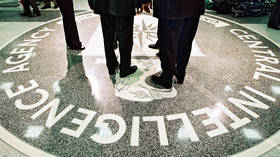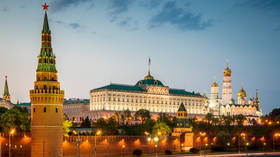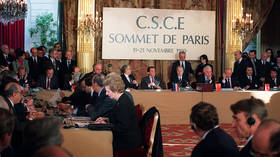Can we trust our spies?

When classified intelligence is handed to politicians or the media, it is meant to improve public policy. But as recent accusations against Russia show, it is instead being deployed for propaganda purposes. Whatever the immediate political purpose, its misuse may weaken trust in public institutions.
‘Manui dat cognitio vires’, runs the motto of the British Army’s Intelligence Corps, in which I once served – ‘Knowledge gives strength to the arm’. The principle is obvious – the better informed you are, the more powerful you will be. Accurate information allows for better decision-making and for a more precise use of the tools you have at your disposal. At least in theory.
This logic explains why states invest enormous resources into intelligence collection and analysis. Whether this truly does produce better decision-making is, however, a matter of some contention. Studies from the US suggest not, concluding that intelligence tends to justify decisions already made rather than to help make them in the first place. In a book on the topic, Michael Herman, a former head of the British Joint Intelligence Committee, concluded that intelligence had only a very minor impact on policy, though it did have a significant effect on how policy was implemented. In short, people do what they want to do regardless, but they may change how they do it.
One could relate this to the hard line being taken by Western states against Russia. Theoretically, this is a product of intelligence indicating that Russia is poised to invade Ukraine. In reality, the hard line existed long before the intelligence came to light. Beside this, there are multiple possible policy options in the face of such a threat. The fact that NATO has chosen the option to ‘deter’ Russia rather than anything else has little to do with the intelligence; it’s simply a reflection of long-standing policy preferences.
In any case, intelligence is never entirely objective. The information one seeks to collect, the credence one gives it, and the way one interprets it are inevitably coloured by existing preconceptions. As CIA analyst Richards J. Heuer pointed out in his book ‘The Psychology of Intelligence Analysis’, cognitive biases bedevil the intelligence process from start to finish.
All of this goes some way towards explaining the recent stream of intelligence revelations coming out of the US and UK concerning Russia. Much of this stretches credulity and smacks of propaganda. It would be easy to imagine that the spooks are making it all up. More likely, though, intelligence is being gathered and analyzed through a distinct ideological lens that produces a decidedly distorted result which reinforces existing preferences and is used to promote existing policy preferences.
A prime example is a claim made this week by the US government that Russia is planning to produce a “false flag” video showing a fake attack by the Ukrainian Army on the people of Donbass. The idea is that this would serve as an excuse for an invasion of Ukraine.
The problems with this allegation are that the US government has produced no evidence to support it and that since the video in question has not been made, but is only “planned,” the US can’t show it to us. We have to take the Americans’ word for it.
There is absolutely no reason why we should. For the United States has a poor track record of accuracy when it comes to claims about Russia and Ukraine.
This goes back as far as early 2014, when the State Department issued photographs of alleged Russian soldiers in rebel-controlled Donbass. These were identified as Russian special forces troops who had previously been photographed in Georgia. Unfortunately for the State Department, it took just a few hours for independent researchers to identify the people in question and prove that they were not in fact members of the Russian military. The story was ‘fake news’.
Fast forwarding to today, we observe other equally dubious claims. These include an allegation made by British intelligence that Russia was plotting a coup in Ukraine. The supposed aim was to install a puppet president in the form of a man with little to no popular support who is also sanctioned by the Russian Federation. The alleged plot made no sense at all and was roundly mocked by experts on Ukrainian affairs.
Then there was the news that the Russian Army had moved supplies of blood close to the Ukrainian border, a clear indicator of impending military operations. However, Ukraine’s deputy defence minister, Hanna Maliar, denounced the story as a provocation designed “to spread panic and fear in our society.” Speaking to The Guardian, Maliar remarked that she had checked with Ukrainian intelligence services: “It simply wasn’t true. We found no information to back this up, we did not see any blood supplies moved to the front or even in the civilian hospitals around the front,” she said.
Returning to the start of this article, in theory, the purpose of intelligence is to enhance decision-making. In practice, these cases show intelligence being used instead to justify policies whose broad parameters were determined some time ago. In short, it is being used not to improve policy, but as a tool of information warfare in support of existing political objectives.
The question is whether people will wise up to it.
There are some reasons for being doubtful. Natural deference to authority plays an important role. So too does the fact that many journalists seem to share the ideological standpoint of the intelligence agencies. Furthermore, while it’s hard to prove that many of these allegations are right, it’s also very hard to prove that they are wrong. If predictions fail to come true, this can always be explained by saying that revealing the prediction forced the other party to change its behaviour. The ‘imminent’ Russian invasion of Ukraine never happened – that’s because we told everybody about it and the Russians backed off. The ‘false flag video’ didn’t appear – that’s because the Russians had to drop the plan once we exposed it. And so on. You can’t win against such logic.
Still, the drip, drip, drip of outrageous, unprovable, and sometimes outright false allegations can’t but have a negative effect on trust. So many intelligence revelations have turned out to be at worst untrue and at best completely unprovable that only a fool would believe them without any supporting evidence. Faith in public institutions appears to be declining, and this may be part of the problem. Using intelligence as a propaganda tool may serve some immediate political purpose in the short term, but in the long term it may backfire.
The statements, views and opinions expressed in this column are solely those of the author and do not necessarily represent those of RT.















